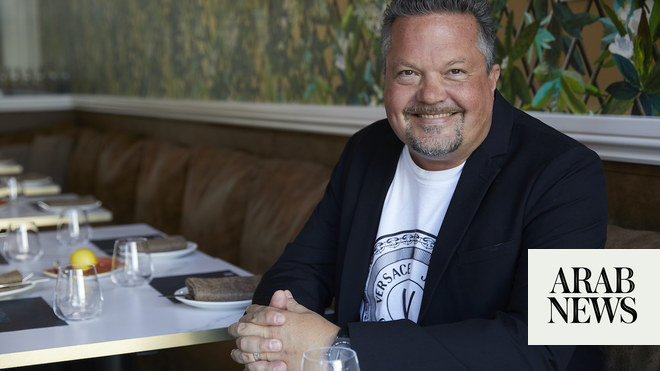
JEDDAH: In preparation for its adoption as a global day, the National Home Health Care Foundation (NHHCF) has launched its “We Care” social initiative which will be celebrated annually on Dec. 8 as a Saudi awareness event.
The announcement of the NHHCF’s new We Care identity came after it received an excellence award from the Gulf Cooperation Council (GCC).
The slogan, approved by the Saudi Ministry of Health, is based on the foundation’s belief in the vital role of civil society institutions in launching community development initiatives to serve the country and citizens, while enhancing their responsibility toward society.
Princess Adila bint Abdullah bin Abdul Aziz Al-Saud, chairperson of the NHHCF board of trustees, told a press conference at Jeddah’s Hilton hotel recently that We Care would continue to spread awareness of home health care services within the community.
“A hospital bed can cost a patient some SR2,000 ($533) a day. If that patient’s case is stable according to a consultant’s recommendation, the service can be provided to the patient at home for less than SR300.INNUMBERS
In 2018, the foundation was able to serve 16,034 patients with 24,185 medical and social services.
In the same year, the foundation made more than 29,400 visits to patients in Tabuk, Hail and Jazan. It also carried out nearly 272,000 patient visits in Jeddah, Madinah, Asir, Baha, Najran and Riyadh.
In 2017, the foundation provided 10,237 patients with more than 11,390 medical services.
Since its establishment 22 years ago, it has helped more than 93,390 patients with at least 140,500 services.
“It is a cost-effective service with the same care quality in an environment that patients desire, which is home,” said the princess.
She added that similar services had been operating in the West for decades.
Her comments came after the NHHCF won the GCC award of excellence for its “We Care 360” app, a leading project in social work and sustainable development. The app was launched by the president of King Abdul Aziz University on May 13 in the presence of Princess Adila.
The Saudi home care awareness day will be the first of its kind to be adopted as a global calendar day for the World Health Organization (WHO) and is credited to Saudi Arabia.
Abeer Kabbani, vice president and head of fundraising and public relations, told Arab News that the logo for the initiative had been inspired by the shomagh (Saudi male head cover), and would be the permanent logo for the occasion.
She said help was available in the provision of various medical devices.
“These include electrical beds, air mattresses, industrial respirators, oxygen generators, electric wheelchairs, all kinds of electrical devices, blood sugar, blood pressure and oxygen measuring devices.”
Kabbani told Arab News that “360” in the app’s name referred to the 360 degrees in a circle. “This circle represents the cycle of our service; from the time a patient first receives it until they send us feedback on the quality of the service.”
She added that the app was launched in line with the foundation’s plans to utilize technology for the benefit of patients.
The NHHCF was established in Riyadh in 1997 under the auspices of Princess Hissah bint Tiradh Al-Shaalan, wife of the late King Abdullah, to care for the growing number of patients with terminal illnesses following their discharge from public hospitals.
Medical equipment
It is a nonprofit organization that aims to maximize quality of life for patients within the home environment, and its western region branch was founded later in 1997 with Princess Adila as its head. She has presided over the NHHCF throughout the Kingdom since 2014.
“The foundation provides patients with necessary medical equipment and consumable supplies and lends them a hand to become self-reliant, independent and productive members of society,” the princess said.
She pointed out that the foundation gave advice to patients’ families on how to assist with health care.
“We have also signed a number of agreements and partnerships to help patients easily get all the medical assistance they need.”
Fourteen years ago, the NHHCF collaborated with King Abdul Aziz University Hospital’s Home Health Care Center to provide funding to pay for patients’ medical expenses. Other similar centers in Saudi cities, including Madinah and Asir, were supported in the same way.
In 2015, the foundation provided more than 9,500 services to patients. “The NHHCF also works closely with hospitals to identify patient needs for medical equipment,” Princess Adila said.
She added that the foundation accepted eligible patients of all ages.
The princess, who chairs an all-female board of trustees, added that the foundation was looking to work more closely with media organizations.
“We have been focusing more on work than media. But we hope media channels can help shed light on our social contributions. We’re hopeful, too, that we can bridge the gap between us and the media through mutual cooperation for public interest.”
She hoped that through publicity the private sector would support their patient-targeted programs and initiatives.











